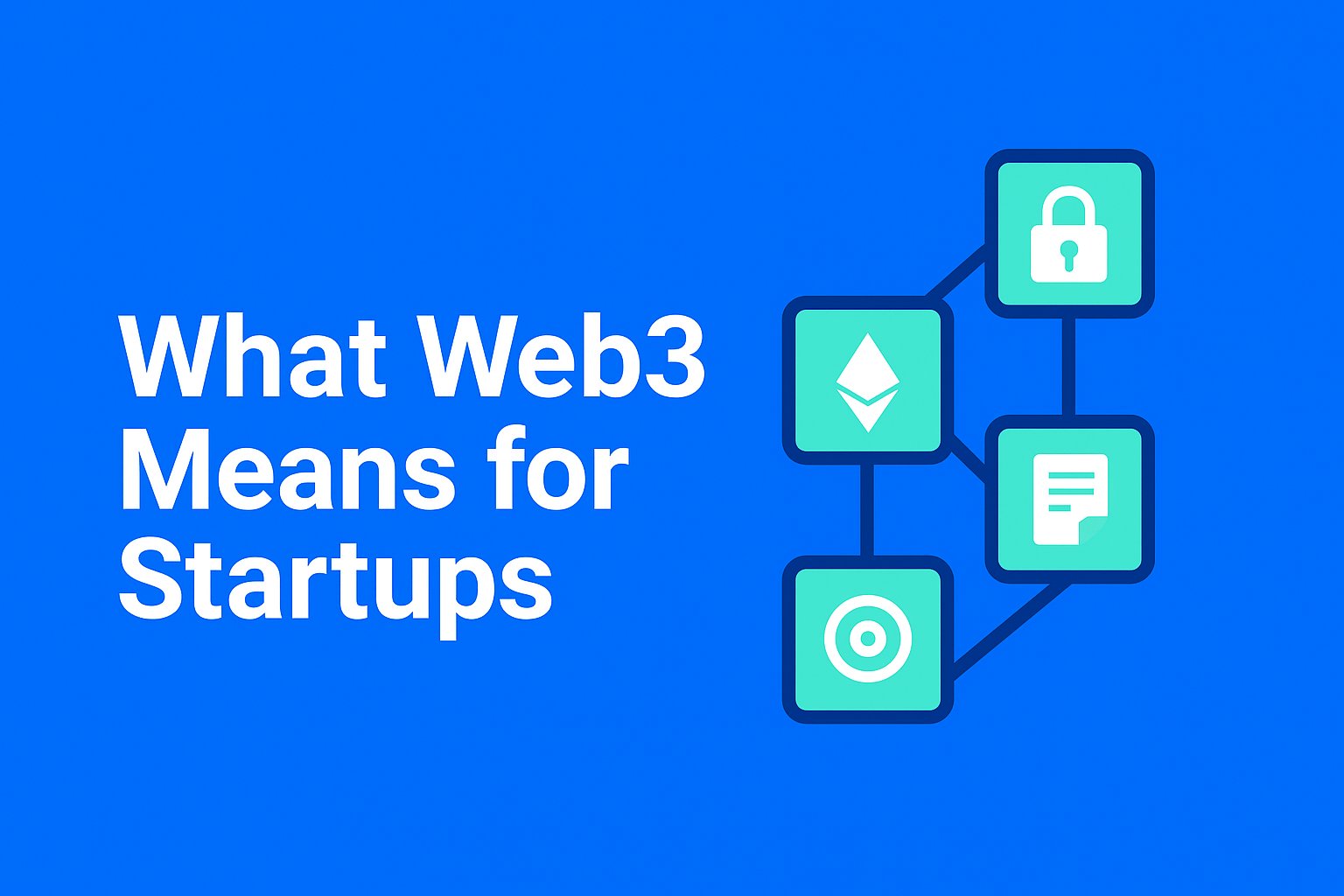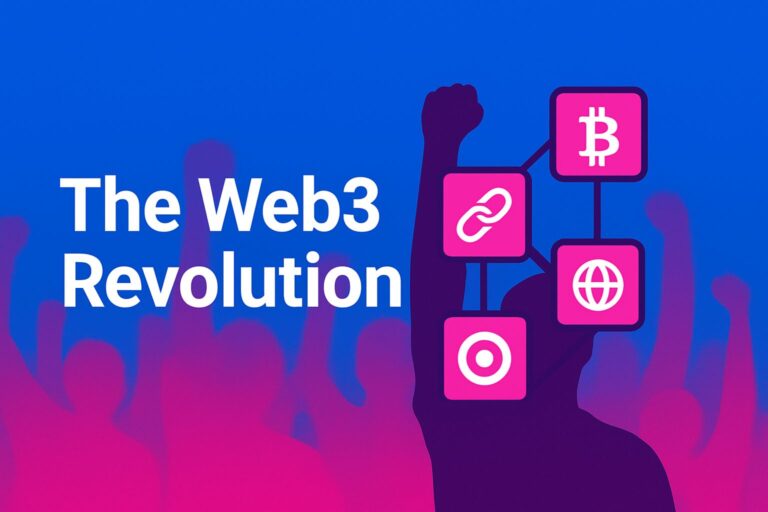Why the Decentralised Internet Matters for B2B Tech…
The internet is evolving once again. After the static pages of Web1 and the platform-driven, social web of Web2, we are now entering the age of Web3, or did you miss that? Web3 is a decentralised internet powered by blockchain technology. For B2B tech startups, this shift represents more than just a technological upgrade, as it represents an opportunity to rethink how businesses are built, how communities are formed and how value is created and exchanged online. In this blog, we’ll explore what Web3 is, why it matters, how it’s reshaping the internet and, most importantly, what opportunities and challenges it presents for tech startups.

What is Web3?
At its core, Web3 is about decentralisation. Instead of the internet being dominated by centralised platforms (think Google, Meta or Amazon), Web3 relies on blockchain networks that are distributed across thousands of computers worldwide.
This means:
- Users own their data instead of platforms.
- Digital identity is portable, tied to wallets and cryptographic keys rather than accounts controlled by a company.
- Transactions and interactions are transparent and recorded on blockchains.
- Value can move natively across the internet in the form of cryptocurrencies and tokens.
Put simply, Web3 promises an internet where control shifts away from corporations and toward individuals and communities. Sounds more equitable, right?
Why Web3 is Significant
The significance of Web3 lies in what it challenges and what it enables as it looks to break the monopolies of the existing platforms that have thrived in Web2. Those internet giants own user data and control access, but Web3 challenges this by enabling peer-to-peer interactions and cutting out intermediaries. This makes it possible for digital ownership to become real. For example, Non-Fungible Tokens (NFTs) demonstrate how digital items, such as art, music and even in-game assets, can be owned, traded and monetised without central platforms.
This ownership model could extend far beyond collectibles and could open the way for new incentives and business models. Tokens enable new mechanisms for rewarding users, incentivising participation and raising funds. In this way, community members can literally become stakeholders in the platforms they use. As every action on a blockchain can be verified, this helps promote transparency and trust, with the potential to transform industries from finance to supply chains.
How Web3 is Changing the Internet
Web3 is already reshaping key aspects of the digital landscape:
- Finance (DeFi)
Startups can build decentralised financial products without traditional banks.
- Identity
Instead of logging in with Google or Facebook, users authenticate with crypto wallets.
- Content Ownership
Creators can monetise directly through NFTs or tokens without relying on YouTube ads or Spotify royalties.
- DAOs (Decentralised Autonomous Organisations)
Communities can self-govern projects, replacing corporate hierarchies with token-based voting.
This shift is moving us toward an internet where individuals are active participants and co-owners, not just consumers of products and services.
What Web3 Means for Tech Startups
For startups, Web3 is both a massive opportunity and a potential disruption.
- Opportunities
Web3 may introduce new funding models for startups, providing alternatives to venture capital. We may see funding come from token sales, community funding and decentralised investment pools. Even growth can be community-driven, as users become stakeholders through tokens, creating powerful network effects. We may see early movers in Web3 gaining a competitive edge, as they define new categories before incumbents have a chance to catch up. Blockchain-based platforms are borderless, helping startups scale internationally from day one.
- Challenges
The legal landscape is still uncertain, so startups must give compliance careful consideration. The user experience of digital wallets, private keys and crypto jargon can be confusing for mainstream users, causing resistance. Due to scams and continued volatility, trust issues may scare off many potential customers. Given that most Web3 platforms are relatively new, there are scalability and security concerns due to their immature infrastructure. The key for startups will be balancing innovation with usability, trust and compliance.
What the Future Could Look Like
Looking ahead, Web3 may not replace Web2 entirely. Instead, we’ll likely see a hybrid internet where decentralisation complements centralisation. Startups will be the ones pushing the boundaries and building bridges between the two worlds.
What we can expect moving forward:
- More Mainstream Adoption
As UX improves, millions more users will adopt wallets and decentralised applications.
- Interoperability
Seamless movement between Web2 and Web3 services.
- More Regulation
Clearer rules will stabilise the space and open doors for institutional adoption.
- New Ecosystems
Just as Web2 created social media and cloud computing giants, Web3 will give rise to new categories of startups we can’t yet imagine.
For tech founders, the takeaway is clear: Web3 isn’t a distant vision; it’s already here. The startups that embrace its principles of decentralisation, transparency and community will be best placed to thrive in the next era of the internet.
A Token for Your Thoughts
Web3 represents a fundamental shift in how the internet works. For startups, it’s not about adopting blockchain or tokens necessarily, but it could be about rethinking business models, community relationships and value creation. The startups that succeed in Web3 will be those that use its tools to solve real problems, create genuine value and build trust in an internet where users are no longer regarded as the product, but can be the owners.
You may want to read: “2025 State of B2B Pipeline Growth Report – Summary”







